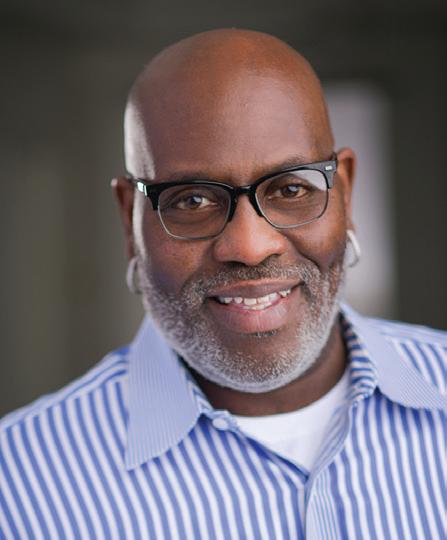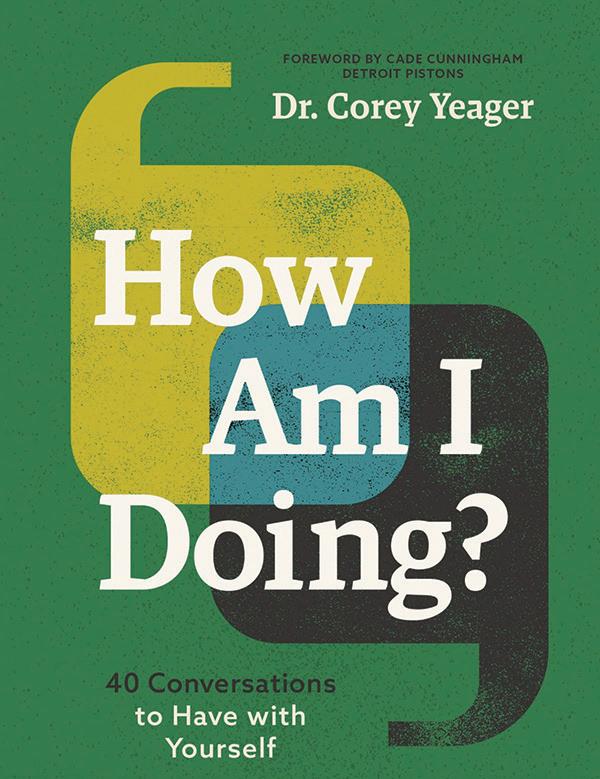
3 minute read
WHAT HAPPENS AFTER YOU REACH YOUR DREAMS?
MLB Pitcher Luke Weaver Shares the Truth Behind Keeping Your Dreams Alive

By Michael Overholt
WE’RE PRONE TO BELIEVE THAT LIFE will be easy once we achieve our dreams. But that’s often where the real work begins.

No one knows this better than Luke Weaver. Growing up in DeLand, Florida, Weaver dreamed of playing in the big leagues for the Tampa Bay Rays. “Baseball was definitely an aspiration, and it’s something that motivated me through the growing stages,” he says.

When the Toronto Blue Jays drafted Luke straight out of high school, it was an honor, but ultimately he chose to attend Florida State University where he compiled a 16-6 record and a 3.04 ERA in 49 appearances.

His college success set him up to be a professional player, and in
2014, the St. Louis Cardinals chose Weaver as the 27th pick in the draft and signed him for $1.8 million.
Dream achieved, right? But what’s behind that dream scenario we can become so enamored with?




Weaver says it best: “The hardest part about getting to the major leagues—obviously, besides getting there—is to stay there.”


Weaver’s career proves that statement. After a couple years in the minors, he played for the Cardinals from 2016–18, and was traded to the Arizona Diamondbacks for the next three years. In 2021, he went to the Kansas City Royals for a year, and then Seattle picked him up in 2022. Besides playing for four clubs in seven years, Weaver has also had his share of injuries, which means that he’s spent considerable time in the training room.
It’s a life of emotional ups and downs, triumphs and frustrations, bumps and bruises. With a brutal 80-plus games on the road, baseball takes its toll on the body and mind.
It can be hard to stay “healthy” physically, mentally and spiritually in the tumultuous, high-pressure job known as professional baseball.
”When emotions are kind of all over the place,” says the soft-spoken Weaver, “whether I’m dealing with anger or being upset or disappointed, I always just feel this sudden presence that Jesus is with me in the room. And in that moment, it flips the switch and shows me which way I need to handle it.”
Weaver makes it sound easy, but he readily admits he’s had to learn it the hard way.
“What helps has always been the Word and prayer and really pushing to make that a priority,” he insists. “I’ve had my moments where I’ve tried to do it myself and it’s the most brutal plan. It’s sloppy, and it’s not built on any type of firm foundation.”
Life in the big leagues without faith would be the most shifting of circumstances. To put things in perspective, a Major League Baseball career lasts—on average—less than three years. Weaver is well beyond the average, but he is looking to the long-term impact that the MLB platform has given him. One way is through working with charities like Striking Out Poverty, which strives to help communities in desperate need.
A second impact is with baseball gear. Weaver teamed up with gear outfitter ARIA to create the Bible glove. It has become a player favorite that’s emblazoned with various Christian symbols and three verses: Philippians 4:13, Matthew 19:26, and 1 Corinthians 16:13. Not only is it made of high-quality leather, it has the ability to give moral strength. As one reviewer insists, “Reading the verses in between pitches helps calm nerves.”
Achieving dreams is one thing; sustaining them is another. But with God, the dreams He gives us may not even be the goal. Luke Weaver knows it’s what comes after as we take what we’ve been given and use it for good in the world.

Watch Luke pitch this spring for the Cincinnati Reds!
”Keep Dreaming!”

Advice from Detroit Pistons psychotherapist Dr. Corey Yeager

“Every day, I‘m surrounded by guys who are at the pinnacle of the sport,” explains Dr. Corey Yeager, the psychotherapist for the NBA‘s Detroit Pistons. “They got to the top of their Everest. But what happens when you get to the top? Sure, you‘ve got a great view, but the journey can‘t end there.


“When the late Kobe Bryant retired from the LA Lakers in 2016, he was widely acknowledged as one of the greatest players of all time. In addition to pro ball, he became a producer and a writer, winning an Oscar for his short film. Even though he was at the top of one mountain, he was always moving forward, setting new goals.



“What are the dreams you have for yourself? Are you stuck on an old dream or in need of a new one. Maybe it‘s time to aim higher, move forward, or set new goals.”











